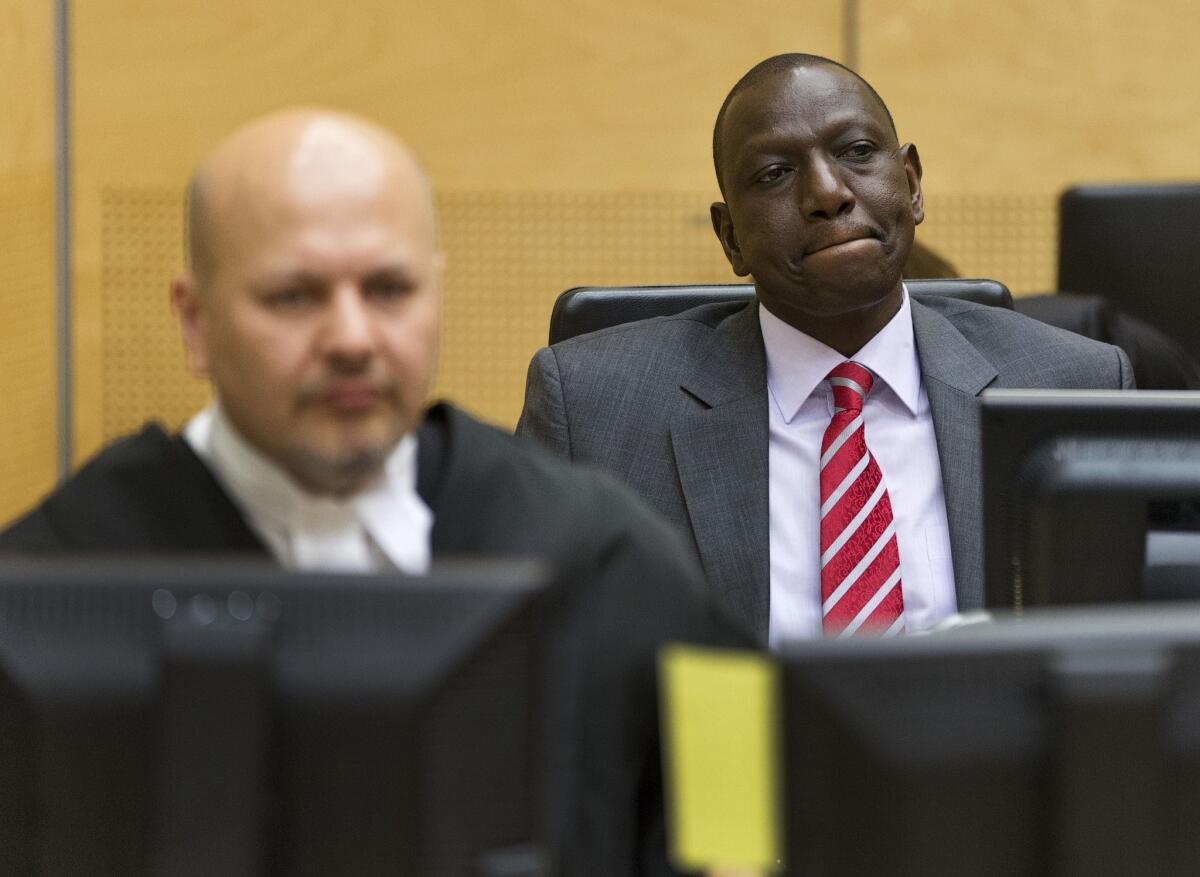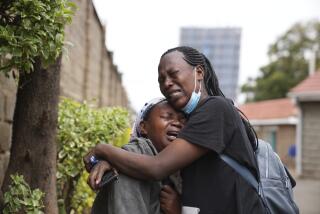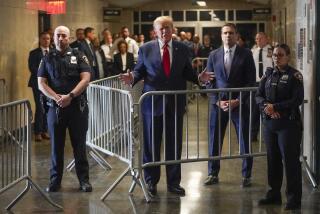UN rejects effort to delay trials of Kenyan leaders

JOHANNESBURG, South Africa -- Kenya and the African Union failed on Friday to persuade the U.N. Security Council to delay the trials in the Hague of Kenyan President Uhuru Kenyatta and his deputy, William Ruto.
The U.N. draft resolution seeking the delay was sponsored by Togo, Morocco and Rwanda, a strong opponent of the International Criminal Court, where the two leaders are facing trials over ethnic violence in their country during 2007 elections.
The resolution argued that the Kenyan leaders need time to consolidate security in their country after the recent terrorist attack on a Nairobi shopping mall.
The measure before the Security Council in New York failed to receive the needed nine votes of approval, with seven members voting in favor and eight abstaining.
Russia, China, Pakistan and Azerbaijan joined the measure’s sponsors to vote in favor of the deferral. The United States, Britain, France, Guatemala, Argentina, South Korea, Australia and Luxembourg abstained, in effect defeating the measure.
The Security Council has the authority to defer an ICC trial for 12 months, and it can renew such a deferral. However, the council has never put off a case.
Kenyatta and Ruto face charges of orchestrating the ethnic violence that swept across their country in 2007, when bands armed with machetes, arrows and spears attacked rival communities, especially in Nairobi’s slums and the volatile Rift Valley. Estimates of the death toll ranged from 1,300 to 1,500.
African leaders have long accused the ICC of disproportionately focusing its prosecutions on their region, and the rhetoric among them in the lead-up to the Security Council vote underscored how sensitive the issue is on the continent.
“This is not about the vote. This is about our [Africa’s] relationship with the Security Council,” Rwandan Ambassador Eugene Gasana said on his way into the council meeting, according to Reuters news service.
Two days earlier, Kenyan presidential spokesman Manoah Esipisu expressed a similar view, saying the vote would show whether the Security Council cared about the interests of Africans, Kenya’s Standard newspaper reported.
Kenyatta and Ruto vowed before this year’s election to cooperate with the court, but Kenyan officials have since campaigned to have the cases dropped or deferred.
After the terror attack on Nairobi’s Westgate shopping mall in September, Kenyan officials argued that the country was at war and couldn’t have its leader overseas for extended periods. In response, the ICC agreed that Kenyatta could skip attending parts of his trial in the Hague, appearing only during important sections.
Kenyatta’s trial, scheduled to begin this month, has been delayed to February by the court. Ruto’s trial is underway. Both deny the charges.
Kenyatta and Ruto were voted into power this year despite the ICC charges, with voting patterns in Kenya generally running along tribal lines. However, a recent poll indicated that more than two-thirds of respondents want their president to appear before the ICC, while 25% said they oppose such a move, according to local media.
The ICC case against Kenyatta is the first against a sitting president and has been plagued by difficulties, with prosecutor Fatou Bensouda complaining that Kenyan authorities have refused to cooperate with the court. She also has said attempts have been made to bribe or coerce witnesses to withdraw their evidence.
A journalist, Walter Barasa, has been charged by the court with interfering with witnesses in the Ruto case.
Human rights organizations, including Human Rights Watch and Amnesty International, had pressed the Security Council not to defer the trial. The former argued Thursday that the council could only defer ICC trials in exceptional cases, such as when proceedings would pose a threat to peace and security.
“The horrifying attack on Nairobi’s Westgate shopping center has thrown the threat of terrorism into sharp relief, but it is, regrettably, not a new development in Kenya or the region,” a Human Rights Watch statement said.
“President Uhuru Kenyatta and Deputy President William Ruto campaigned on pledges to cooperate with the ICC and maintained at the time that this cooperation would not pose a problem for their governance of the country,” the statement added. “No case has been made that by deferring the ICC’s proceedings, the Kenyan government would be in a materially better position to combat terrorism.”
Tawanda Hondora, Amnesty International deputy director of law and policy, said Wednesday in a statement that the victims of Kenya’s post-election violence had waited long enough for justice, adding that it would be a shame if the Security Council put the interests of political leaders ahead of victims.
“African leaders displayed their commitment to international justice when they signed the [Rome Statute] stating that no one, not even a head of state, is exempt from criminal responsibility,” she said. “They should not renege upon this now by calling for a deferral.”
A recent meeting of African Union leaders resolved that sitting leaders should not face trial before the ICC. However, attempts to persuade African countries to leave the Rome Statute, which set up the court, failed to gain enough support at the gathering.
ALSO:
Philippines government defends typhoon response
China to loosen its one-child policy, end labor camps
Remittances to Latin America rebound -- except in Mexico
Twitter: @latimesdixon
More to Read
Sign up for Essential California
The most important California stories and recommendations in your inbox every morning.
You may occasionally receive promotional content from the Los Angeles Times.










